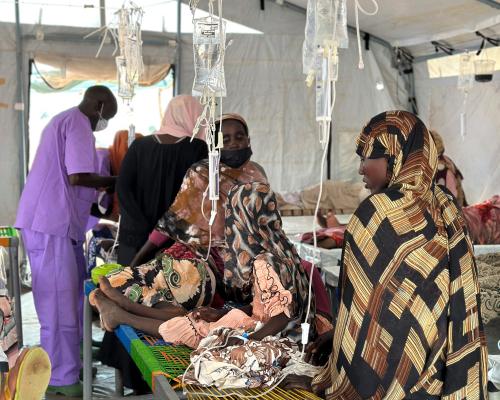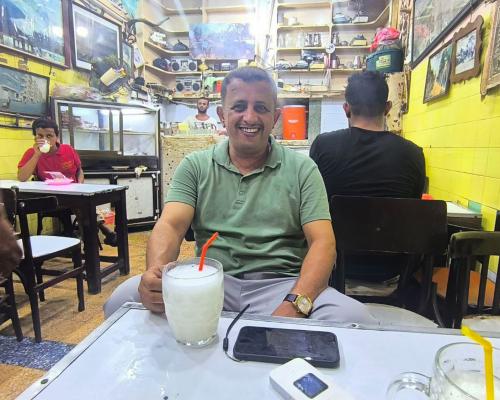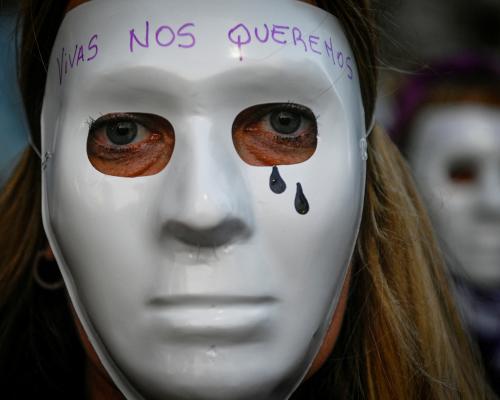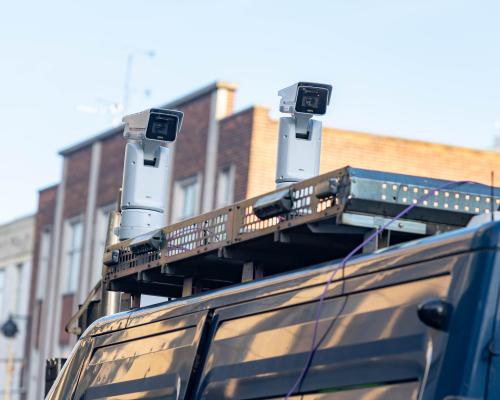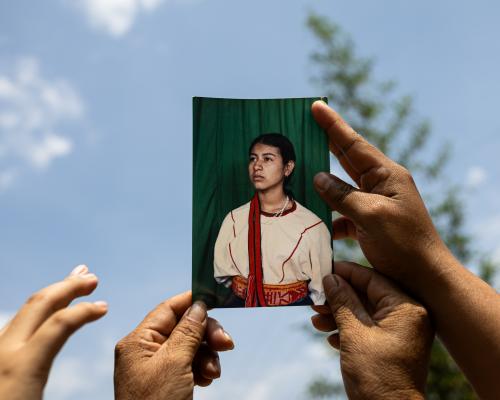
On 4 October 2024, as a storm lashed the town of María Lombardo de Caso, in the southern Mexican state of Oaxaca, Sandra Domínguez stopped answering her family’s messages. After three days, Kisha Domínguez, her sister, knew something was wrong. She made the eight-hour car journey with their mother, Aracely Martínez Villanueva, from the city of Oaxaca. When they arrived, they found Sandra’s home empty, her car abandoned. Her husband had also disappeared.
Six months later, on 24 April, their bodies were found on a ranch 21 miles from María Lombardo.
Sandra and her husband, Alexander Hernández, might have gone down as two more victims of the violence that grips Mexico, where roughly 30,000 people are murdered each year. But this time the case shot to national attention.
Sandra was a feminist activist, known for helping the families of disappeared women and for twice rocking the political establishment in Oaxaca by denouncing powerful men involved in misogynistic WhatsApp groups.
The uproar over her disappearance seemed to spur the investigation, leading to the discovery of the bodies – an exception in a country where most who disappear are never found.
Yet, who murdered the couple – and why – remains unclear. Authorities claim Sandra was “collateral damage” in a conflict between criminal groups. Her family, who now take care of her teenage daughter, believe her murder was tied to her activism.
***
Sandra was born in San Isidro Huayápam, an Indigenous Mixe community in Oaxaca. She studied law at university, before founding the Liberal Union of Oaxacan Women, an association to promote women’s rights. She spent time encouraging women from Mixe communities (also known as the Ayuuk), many of whom are relatively poor and marginalised, to get into politics. She also rescued women from domestic abuse.
“Sandra was a pioneer, a woman who stood up to men with machetes,” says a friend, who asked to remain anonymous for their safety. “The authorities don’t get involved in such things: they say they are marital problems. She always said we had to be fearless.”
Sandra’s activism sometimes set her against local, male-dominated political power structures. In 2020, she confronted them head on. When she found out about a misogynistic WhatsApp group in which politicians and officials shared intimate images of Indigenous women – including her – she blew the whistle.
The ensuing uproar set back the careers of powerful men, who had to leave their jobs or give up candidacies for political posts. But it also cost Sandra career opportunities, says her family. “Sandra paid dearly for denouncing that group,” says Kisha. “She lost a lot of friends in politics.”
The following year, she moved to María Lombardo, where she helped mediate relations between Mixe communities. She also kept up her activism, helping victims of rape and families of disappeared or murdered women.
In 2023, she made national news again when she helped Aracely Cruz, a Mixe economist, denounce her ex-partner, Donato Vargas Jiménez, a powerful political figure in Oaxaca, for domestic violence – and for his participation in another misogynistic WhatsApp group similar to the one in 2020.
“Without knowing me, she came to my defence. She was the best friend I could have found in that moment,” says Cruz.
After that, her family says Sandra received anonymous phone calls describing her movements and telling her they would be “her shadow”. When Cruz won a seat in parliament in the 2024 elections, she wanted Sandra to join her team in Mexico City, but Sandra said no.
Cruz says: “I asked her if I had done something wrong. She simply said, ‘No, just look after yourself.’ And that left me worried. Why did she say that?”
A few months later, Sandra, then 38 years old, disappeared.
After they arrived in María Lombardo, the family says they tried to file a missing person’s report for Sandra, but local officials were unhelpful. “They told us to wait a few days, to check that Sandra hadn’t just gone partying,” says Kisha.
In their desperation, the family began asking Sandra’s neighbours if they knew anything, but say people were afraid to talk to them. They also say they were tailed by a red pickup truck. Friends told them it was not safe to stay in the town.
On 8 October 2024, the government finally declared Sandra missing. And on 11 October, the family held a press conference in the city of Oaxaca to spread the word, and the case became national news.
“It took off because this was the woman who had denounced the WhatsApp groups. And all of us realised that if we let them take one of us now, they could take any of us,” says Yésica Sánchez Maya, director of Consorcio Oaxaca, a feminist organisation.
In Oaxaca, the family led marches and set up camp outside the governor’s office. They wrote a public letter to president Claudia Sheinbaum, while Cruz herself later held a press conference in Mexico City. The UN and international human rights organisations called for urgent action from authorities.
The family have been critical of the investigation and when men on motorbikes began following them, taking photos, they felt they were being intimidated into silence.
“If it happened like this with Sandra, just imagine what it is like with other victims of forced disappearance who aren’t so well known,” says Kisha.
By the time the bodies were found in late April this year, the decomposition was advanced. The authorities told them it might take months to prove it was really Sandra and her husband, by finding DNA they could extract, or analysing the teeth. Unable to bear the thought of waiting, Kisha, who is a dentist, did it herself.
“They asked me not to, for the sake of my emotional and mental wellbeing,” says Kisha. “But my wellbeing went to hell long before that.”
In finding Sandra, the family says they have a bitter kind of closure that few families of the disappeared in Mexico find. “It’s not the way we wanted to find her,” they said in a press conference the day it was announced. “But now she is home.”
Yet, they may never know for certain who killed the couple and why. The authorities have asserted that Sandra’s disappearance was related to organised crime, claiming that her husband, Hernández, 48, who disappeared alongside her, was a member of a criminal group.
The family preferred not to comment on Sandra’s husband, but were furious about the implicit “criminalisation” of Sandra, and want the authorities to reconsider her activism as a line of investigation in her disappearance.
Oaxaca is the most dangerous state in Mexico for activists. Since 2018, 58 people have been murdered and six more are missing.
In Mexico, about 2,500 women are murdered a year, but less than a third are categorised as femicides even when there is evidence they should be. Less than a quarter of femicides are punished.
Since Sandra was found, the family says they have had no update on the investigation. They want to continue speaking out, but are fearful: they say the tyres on their car have been slashed, and strangers sometimes take photos of their home.
“But I’d like this to mark a before and after: for women to be able to speak up without being silenced,” says Kisha.

